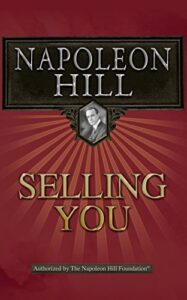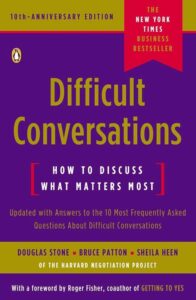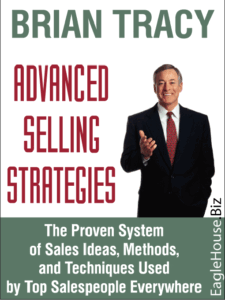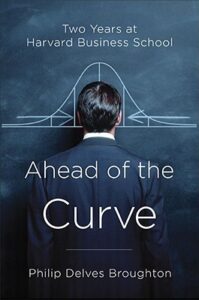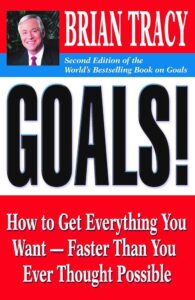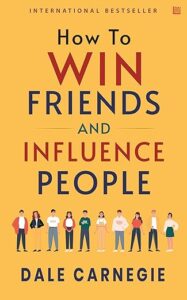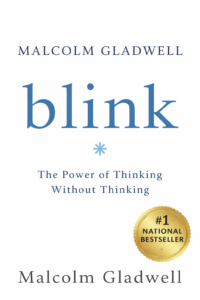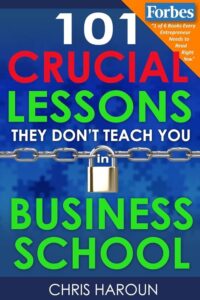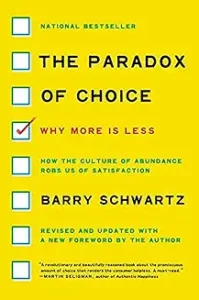Summary
Chapter 1: The Thought That Built a Fortune
“Truly, thoughts are things—and powerful things at that.” – Napoleon Hill
💡 It All Began With a Thought
The book opens with a powerful idea: everything you see around you—every fortune, invention, achievement—was once just a thought.
Hill immediately sets the tone with the story of Edwin C. Barnes, a man with no money, no connections, and no education—but with a fierce, unshakable desire to partner with the great inventor, Thomas Edison.
He didn’t want to work for Edison.
He wanted to work with Edison.
🚂 Barnes and the Train of Desire
Barnes was so determined to meet Edison that he hopped on a freight train to New Jersey, arriving in ragged clothes. He looked like a tramp. But when he arrived at Edison’s lab, he announced his intention boldly: “I have come to go into business with Edison.”
Edison later said:
“There was something in the expression on his face which conveyed the impression that he was determined to get what he had come after.”
Edison gave him a chance—not a partnership, but a small job.
Barnes took it, with the unshakeable belief that it was his first step.
🧠 The Power of a Burning Desire
Barnes worked for five years, with no hint that his dream would come true. But he never lost faith. He behaved and believed as if he were already Edison’s partner.
Then, one day, Edison created a new dictating machine. His salesmen weren’t interested. Barnes saw his chance. He told Edison he could sell it—and he did. Brilliantly.
The partnership was born. Barnes didn’t just earn money—he earned legacy, respect, and the unshakable knowledge that thoughts become things when mixed with faith and persistence.
⚔️ Burn the Boats
Barnes’ story is paralleled with another—of a general who ordered his army’s boats burned after landing in enemy territory. The message? “We win—or we perish.” They won.
That’s what Barnes did. He burned his boats. He left no room for retreat. He bet everything on one idea: becoming Edison’s partner.
📌 Lessons from Chapter 1
- Riches begin with a definite idea. But that idea must be backed by desire, faith, and action.
- Success doesn’t announce itself—it often comes disguised as hardship.
- Persistence pays off. Barnes waited five years for his moment—but he was ready when it came.
- You must be willing to risk everything. Only then do you unlock the full power of your mind.
🧭 Final Thought
“Barnes literally thought himself into a partnership with Edison. He thought himself into a fortune.”
This chapter isn’t just an introduction—it’s a declaration of power. If you learn one thing from Barnes, let it be this:
When your desire is clear, your decision firm, and your belief unshakable—nothing can stop you.
Chapter 2: Desire – Where All Greatness Begins
“Desire is the starting point of all achievement, not a hope, not a wish, but a keen pulsating desire which transcends everything.” – Napoleon Hill
🔥 The Tale of Two Desires
This chapter begins and ends with two deeply personal stories—each showing how desire can overcome odds that seem impossible.
The first is the continued story of Edwin C. Barnes, who desperately wanted to become Thomas Edison’s business partner. Not employee. Not admirer. Partner. For five years he held onto that one idea with burning obsession—and it came true.
The second is about Napoleon Hill’s own son, Blair, born with no hearing. Doctors told the family he’d never speak. But Hill planted a belief—through persistent, loving suggestion—that Blair would one day hear and speak normally. That belief became a reality, shocking the medical world.
🧭 The Six-Step Formula for Turning Desire into Riches
Hill gives us a clear, practical system—one of the most quoted sections in self-development literature:
- Fix in your mind the exact amount of money you desire.
- Determine what you will give in return.
- Set a definite date to possess the money.
- Create a definite plan—and begin at once, whether ready or not.
- Write a clear, concise statement of the amount, the deadline, what you’ll give, and your plan.
- Read your statement aloud twice daily, and as you read—see, feel, and believe yourself already in possession of the money.
This isn’t just goal-setting—it’s about creating emotional certainty. You’re not asking the universe… you’re commanding yourself.
💡 A Merchant Rebuilds from Ashes
Hill recounts how after the great Chicago fire, most businessmen fled the city. One merchant, Marshall Field, stayed. He pointed to the rubble and said, “On that very spot, I will build the world’s greatest store.” He did. That’s Desire in action.
🧠 Desire vs. Wishing
“Wishing will not bring riches. But desiring riches with a state of mind that becomes an obsession… will bring riches.”
Hill makes it crystal clear: wishing is passive. Desire is active, deliberate, and emotional.
To turn a dream into wealth, you must:
- Know exactly what you want.
- Refuse to accept defeat.
- Be willing to act with boldness and belief.
🛡️ Final Message: Burn All Bridges
Just like Barnes, just like Marshall Field, and just like Blair Hill—your desire must be so strong that you leave no way out. When failure is not an option, success becomes inevitable.
“Every person who wins in any undertaking must be willing to burn his ships and cut all sources of retreat.”
Chapter 3: Faith – The Inner Fire That Makes the Impossible Real
“Faith is the starting point of all accumulation of riches.” – Napoleon Hill
🔮 What Is Faith, Really?
Faith isn’t just belief. It’s not blind hope. It’s a state of mind, a mental and emotional certainty that what you want is already on its way.
Hill tells us that when thoughts are emotionalized with faith, they are instantly received by the subconscious mind and translated into their physical equivalent. Faith is the bridge between thought and reality.
🧠 Faith + Thought = Power
Faith acts as the “head chemist” of the mind. When blended with thought, it creates a magnetic force that attracts similar vibrations—ideas, people, circumstances—from the universe.
This isn’t poetic language. It’s Hill’s “mental chemistry.” He claims that your mind becomes a spiritual magnet, broadcasting your belief and pulling in results.
🛠️ How to Build Faith (Even If You Don’t Have It Yet)
Faith can be built consciously through:
- Repetition of thoughts (autosuggestion).
- Emotional conviction—you must feel what you say.
- Visualizing your goal as already achieved.
“Every man is what he is because of the dominating thoughts he permits to occupy his mind.”
This is why daily affirmations are crucial. Repetition + emotion = belief. Even a lie, if repeated with feeling, becomes truth to the subconscious mind.
❤️ The Hidden Force Behind Great Men
Hill reveals a powerful insight: behind nearly every successful man he studied, he found the influence of a woman’s love.
Why? Because love, faith, and sex are the strongest human emotions. When combined, they supercharge thought and give birth to genius.
🌍 Gandhi: A Living Example
One of Hill’s greatest examples is Mahatma Gandhi. He had no money, no army, no political power—yet moved 200 million people into action.
“Gandhi wields more potential power than any man living… HE CREATED IT OUT OF HIS UNDERSTANDING OF FAITH.”
That is the transformative power of faith. It can move nations, shift minds, and rebuild empires.
⚠️ Warning: Faith Works Both Ways
Hill is crystal clear: your subconscious doesn’t care if your thoughts are positive or negative. It will believe whatever you feed it.
So if you believe you’re doomed, unworthy, or destined to fail… guess what? Your subconscious will create that reality just as easily.
🧭 Final Takeaway
“Repetition of affirmation of orders to your subconscious mind is the only known method of voluntary development of faith.”
Faith is not a gift—it is a skill. And when you learn to blend it with clear desire, spoken words, and vivid mental pictures, you become unstoppable.
Chapter 4: Auto-Suggestion – The Programming Language of the Mind
“Auto-suggestion is the agency of control through which an individual may voluntarily feed his subconscious mind on thoughts of a creative nature…”
🎯 What Is Auto-Suggestion?
Imagine your mind as a garden. Auto-suggestion is the act of planting seeds in that garden every day—seeds of desire, belief, fear, or doubt. Whatever you repeat—whether success or failure, confidence or fear—grows.
Auto-suggestion is simply self-suggestion. It’s how we train the subconscious mind. It acts as a bridge between your conscious thoughts and your subconscious beliefs.
🧠 The Subconscious Doesn’t Judge
Your subconscious accepts any message you repeatedly send it—whether true or false, helpful or harmful.
That’s why Hill says:
“The subconscious mind will translate into reality a thought driven by fear just as readily as it will one driven by courage or faith.”
🪄 The Law of the Mind: You Become What You Repeatedly Say
Hill urges readers to revisit the six steps from Chapter 2 and apply them with emotion and faith. The act of reading your desire aloud twice daily, with conviction, is the most effective use of auto-suggestion.
“Plain, unemotional words do not influence the subconscious mind. You must mix EMOTION and FAITH into your words.”
💥 The Poem That Says It All
Hill includes a famous poem that distills the power of belief:
“If you think you are beaten, you are.
If you think you dare not, you don’t.
…Life’s battles don’t always go
To the stronger or faster man,
But soon or late the man who wins
Is the man who thinks he can.”
This isn’t just poetry. It’s a mental formula for winning.
🔥 Warning: Auto-Suggestion Works Both Ways
Just like electricity, auto-suggestion can build a city or burn it down—depending on how it’s used. Thoughts of fear, poverty, and inferiority can destroy just as easily as thoughts of courage and wealth can elevate.
Hill gives the tragic example of a man who literally died from the fear of disgrace, proving that negative suggestions can be fatal.
✅ How to Apply Auto-Suggestion
- Write down your definite goal (as described in Chapter 2).
- Read it aloud twice daily—morning and night.
- Visualize and feel it as already yours.
- Inject belief and emotion into your repetition.
- Repeat until belief becomes automatic.
🧭 Final Thought
“Auto-suggestion is the keystone to the arch of this philosophy.”
This chapter is the mechanism through which every other principle works. It’s not magic—it’s mental conditioning. You’re reprogramming your mind to believe so strongly in your goal that the world eventually bends to that belief.
Chapter 5: The Power Hidden in What You Know Best
Imagine you’re standing in a room full of college professors. They’ve spent decades teaching history, science, and literature. Yet many of them struggle financially. Why? Because they possess general knowledge—a sea of information with no focused use.
Now, picture Henry Ford. He left school early, never mastered classical subjects, and yet became one of the richest men of his time. How? Specialized knowledge. Not because he personally knew everything—but because he knew how to gather the right knowledge and apply it.
The Story of Henry Ford – The “Uneducated” Genius
Once, a newspaper called Ford an “ignorant pacifist.” So he sued them. In court, they bombarded him with trivia questions. “Who was Benedict Arnold?” “How many British soldiers were sent in 1776?” Ford calmly replied:
“If I really want to know that, I have a row of push-buttons on my desk. I can summon any man who does.”
Mic drop. The courtroom went silent. Ford didn’t carry trivia in his head—he carried a network of specialized knowledge. That’s what made him unstoppable
The Real Secret Behind Riches
“Knowledge is only potential power. It becomes power only when it is organized and applied.”
Success doesn’t come from knowing everything. It comes from knowing the right thing, applying it with a plan, and aligning it with your definite goal.
Real-Life Stories to Inspire You
- Stuart Austin Wier – The Late-Blooming Lawyer
- Once a struggling engineer during the Depression, he retrained himself as a lawyer after age 40—while married!
- In two years (half the time of a normal degree), he built a thriving law practice.
- Lesson: It’s never too late to gain specialized knowledge that serves your purpose
- The Grocery Clerk Turned Business Owner
- A man lost his job during tough times.
- Instead of giving up, he studied bookkeeping, and launched a mobile accounting service.
- Result? He now runs a fleet of “bookkeeping trucks” and earns more than his former employer.
- Lesson: Combine knowledge + imagination = a winning idea
Key Takeaways 📌
- General knowledge fills books. Specialized knowledge fills bank accounts.
- Know what knowledge you need, why you need it, and where to find it.
- You don’t need to know everything yourself. Build a Master Mind group of people who do.
- The most valuable skill today? Knowing how to learn and apply.
- Education doesn’t stop after school. Real winners keep learning forever.
Chapter 6: Imagination – The Invisible Workshop That Builds Fortunes
“Man’s only limitation, within reason, lies in his use of imagination.” – Napoleon Hill
Let’s step into the mind of a young pharmacist, who took all his savings—just $500—and bought nothing but an old kettle and a slip of paper with a secret formula. Sounds foolish, right?
But what if I told you that kettle, once mixed with an ingredient called imagination, became the first product of the Coca-Cola empire? That $500 investment turned into billions.
That’s the power of imagination. It’s where DESIRE is transformed into ACTION—the bridge between dreams and reality
🔧 The Two Tools of the Mind’s Workshop
- Synthetic Imagination
- Rearranges old ideas into new forms.
- Used most by businesspeople, inventors, and problem-solvers.
- Example: A marketer rebrands a book with a new title—and sells a million copies without changing a word
- Creative Imagination
- Connects with Infinite Intelligence—it’s where “hunches,” “aha!” moments, and breakthroughs come from.
- Used by geniuses, poets, inventors.
- It’s like tuning into a higher radio frequency, where the best ideas live
✨ Real-World Magic: The Enchanted Kettle Story
Imagine the courage it took for a small-town drug clerk to bet everything on an idea. He bought that kettle and formula, then used his imagination to create a new kind of drink. He mixed in a bit of sugar, some fizz, a splash of marketing, and a ton of vision.
What started as a boiling pot became Coca-Cola. That’s the monetization of imagination.
The idea wasn’t worth anything on paper—but combined with belief, planning, and creativity, it became one of the most valuable brands in the world
💡 Takeaway Truths
- Ideas are the beginning of all fortunes.
- Your brain is a workshop, not a warehouse. Use it to create, not just to store facts.
- Your imagination is a muscle—it grows stronger with use.
- Every product, invention, and fortune begins in the mind of someone who dared to dream differently.
✅ How You Can Use This Today
- Write down your desire. Then sit quietly and let your mind wander—ask, “What if…?”
- Stimulate imagination with new experiences, books, people, and emotions.
- Use your synthetic imagination to improve something that already exists.
- Let creative imagination flow in high-energy states: after exercise, when deeply inspired, or even during meditation.
“Everything you see—your phone, your clothes, even your bank account—once existed only in someone’s imagination. Yours can be next.”
Chapter 7: When Dreams Get Their Feet – Organized Planning
“A quitter never wins—and a winner never quits.” – Napoleon Hill
Imagine your desire is a spark. Your imagination is the fuel. But without a plan, you have no fire—just potential.
That’s where organized planning enters the story. This chapter is your blueprint—the moment when your vision gets boots, maps, and marching orders.
🔧 From Idea to Action: The Builder’s Blueprint
Let’s say you want to build a mansion. You can dream big, gather expensive materials, even buy a perfect plot. But without a blueprint, it’s chaos. The same applies to wealth.
Hill shows that every person who’s ever built great fortunes—Ford, Edison, Carnegie—followed definite, organized plans, not luck
🧠 The Master Mind Strategy
No one gets rich alone.
You’re instructed to build your Master Mind Group—a small alliance of people whose talents, knowledge, and energy combine with yours. Think of it like forming your own board of directors.
Hill says:
- Choose wisely. Meet regularly.
- Offer value to each member—they must benefit too.
- Above all, maintain perfect harmony. Without it, your plan fails
🛠️ The Plan Checklist
- Form a definite plan to turn your desire into money.
- Start immediately, even if your plan isn’t perfect.
- Revise and refine as you go. Failure is feedback.
- Get help—no one has all the knowledge alone.
- Back your plan with persistent action. A plan without action is a wish.
👩💼 Real-Life Inspiration: The Woman Who Built a Business Out of Her Son’s Resume
One mother created a powerful “Personal Service Sales Plan” to help her son get a better job. Word spread. Soon, she turned it into a national business, helping others market their skills for better pay.
She didn’t wait for luck—she planned, acted, and adapted. Now she earns more than most doctors and lawyers. That’s the power of organized planning + imagination
📌 Key Lessons
- An unapplied idea is just a dream. Action turns it into gold.
- Plans are not fixed—they’re living documents. Adjust until they work.
- Leadership starts with being a good follower. But to lead, you must plan like one.
- Most people fail not because they lack talent—but because they never made a real plan.
Chapter 8: Decision – The Turning Point from Dreaming to Doing
“Successful people make decisions quickly and change them slowly—failures do the opposite.” – Napoleon Hill
🧠 The Invisible Killer of Success: Procrastination
Napoleon Hill studied over 25,000 people who failed in life—and one trait kept showing up: indecision.
You’ve probably met that person—they talk about starting a business “someday,” they have “a great idea,” but they’re waiting for the perfect moment. That moment never comes. Why? Because “Old Man Procrastination” has them in a chokehold
Now, contrast that with every one of the hundreds of millionaires Hill interviewed: they made firm, fast decisions—and they stuck to them. Their secret wasn’t brains. It wasn’t luck. It was courageous clarity.
💪 Courage in Action: The Boldest Decisions in History
- Henry Ford kept making the Model T long after critics mocked it. Why? Because he believed in it. That stubborn decision made him rich
- The 56 signers of the Declaration of Independence knew they were risking death. Their decision gave birth to a nation
- Lincoln, Socrates, and Robert E. Lee all made decisions that went against the crowd—decisions that shook history
Hill’s message is clear: your wealth, freedom, and happiness rest on your ability to decide.
🧭 Rules of Rich Decision-Makers
- Think for yourself. Opinions are cheap. Protect your goals from the noise of others—especially well-meaning family or friends
- Don’t overshare. Hill advises: “Tell the world what you intend to do—but first, show it.” Actions beat talk
- Silence is strength. Speak less, observe more. Those who listen win.
- Expect resistance. Big decisions require courage. Don’t wait for everything to be safe or guaranteed.
🔥 Final Lesson: Decide Like Your Life Depends on It
You don’t need to bet your literal life like the Founding Fathers. But every indecision about your dream does cost you something: time, confidence, and opportunities.
“The person who desires riches in the same spirit that Samuel Adams desired freedom for the Colonies is sure to accumulate wealth.”
Chapter 9: Persistence – The Secret Weapon That Separates Winners from Dreamers
“There is no substitute for persistence! It cannot be replaced by talent, education, or luck. Without persistence, you will be defeated before you even start.” – Napoleon Hill
🔥 The Story of Broadway’s Silent Test
Picture Fannie Hurst, a woman who walked the streets of New York for four long years—rejected by 36 publishers. Most would’ve quit at rejection #1. But she didn’t flinch. She kept pounding those sidewalks. And then, one day, she “broke the ice.” Suddenly, the money came—so fast she couldn’t count it. Her novel, Great Laughter, sold for $100,000 before it even hit shelves.
How did she do it?
PERSISTENCE. It was her ticket to riches, and her shield against rejection
💪 Persistence: The Iron in Your Character
Persistence is like carbon in steel—it hardens your resolve and makes your character unbreakable. It’s not glamorous. It doesn’t come with applause. But it’s the quality behind every fortune ever made.
Hill says the reason most people fail is simple: they quit too soon. The Edisons, the Fords, the Rockefellers? They simply kept going where others turned back
🧠 The Formula for Cultivating Persistence
You don’t have to be born with persistence—you can build it using these four steps:
- Definite Purpose + Burning Desire
Know what you want and why you want it. - Definite Plan + Continuous Action
Don’t wait for perfect conditions—act now, and adjust as you go. - A Mind Shielded from Negativity
Guard your thoughts like a fortress—don’t let opinions or fear seep in. - Supportive Alliance
Surround yourself with people who push you forward
💡 Real Stories of Relentless Grit
- W.C. Fields, broke and aging, worked for free in Hollywood until someone gave him a chance. Persistence made his comeback.
- Marie Dressler, nearly 60 and penniless, became a star again—because she didn’t quit.
- Eddie Cantor, wiped out by the 1929 crash, rebuilt his fortune through sheer will and persistence
⚠️ Symptoms of Weak Persistence
Hill warns us of common dangers:
- Procrastination
- Indecision
- Self-satisfaction
- Blaming others
- Accepting failure too easily
These are red flags that you’re not burning with desire—or not backing your goals with enough fight
.
📌 Final Truths
- Every failure carries the seed of an equal or greater success—but only for those who keep going
- If you’ve ever had to “snap out” of a nightmare, using just willpower to move a single finger, you’ve felt persistence in its purest form
“The world steps aside for the person who knows where they are going—and keeps going.”
Chapter 10: The Master Mind – Your Hidden Power Plant
“Power is essential for success in the accumulation of money.” – Napoleon Hill
Imagine you’re trying to light up a city with a single flashlight. You might see your next step, but never the road ahead. Now imagine a power station, built from many energy sources, lighting up the entire skyline.
That’s what a Master Mind group is: a mental power station. You don’t just think—you superthink, amplified by the brains of others in harmony with your purpose.
⚡ The Story Behind the Power
When Andrew Carnegie shared the Master Mind principle with Hill, it wasn’t just a clever idea—it was the reason behind his empire. Carnegie surrounded himself with a team of 50 men, each contributing their specialized knowledge, and working in perfect unity. The result? A fortune so vast, it reshaped the American economy
Carnegie told Hill: “I owe everything to the power of the Master Mind.”
🧠 What Is the Master Mind?
“The coordination of knowledge and effort, in a spirit of harmony, between two or more people, for the attainment of a definite purpose.”
This principle has two sides:
- Economic – Multiple minds bring more ideas, contacts, skills, and plans.
- Psychic – When two minds blend in harmony, they create a third, invisible force—a sort of “third mind” that opens the door to creativity, insight, and intuition
⚙️ The Mechanics of Power
Power, Hill says, is organized knowledge put into action. But no single person has enough time, energy, or knowledge to master every detail of a great plan.
So, you build a brain trust. Your Master Mind group helps:
- Fill gaps in your experience.
- Critique and refine your plans.
- Hold you accountable.
- Keep your belief strong when doubt creeps in
Just like a battery grows stronger when linked with others, your brain increases its energy and clarity when linked to others in a common goal
.
🔥 Real Results: Ford, Edison, Firestone, Burroughs
Hill notes that Henry Ford’s real breakthroughs began when he built friendships and alliances with other great minds like Thomas Edison, Harvey Firestone, and John Burroughs.
Their mental synergy gave Ford access to new ideas, perspectives, and wisdom far beyond his formal education. He didn’t just build a car—he built a collective mind
.
✅ Your Turn: How to Build Your Master Mind
- Choose wisely – Members must align with your values and aim.
- Meet regularly – To spark energy, share ideas, and hold momentum.
- Demand harmony – One toxic attitude can ruin everything.
- Offer value – Make sure everyone benefits.
- Protect it fiercely – Treat it as sacred; it is the engine of your dream
“No two minds ever come together without, thereby, creating a third, invisible, intangible force… a third mind.”
Chapter 11: The Hidden Power That Turns Desire Into Genius
“Sex transmutation is the switching of the mind from thoughts of physical expression to thoughts of some other nature.” – Napoleon Hill
🔥 The Most Powerful Energy We All Have
Hill begins this chapter with a bold idea: the emotion of sex is the most powerful of all human desires. It’s so strong that people risk everything—reputation, life, and freedom—for it.
But what if you could take that same fire and redirect it?
That’s sex transmutation—turning raw desire into genius-level creativity, unstoppable drive, and financial power.
🧠 Sex + Willpower = Genius
Hill says that many of the world’s greatest leaders, artists, and inventors had one trait in common: a highly developed sex nature. But instead of letting it control them, they learned to channel it into their work, vision, and purpose
Like a river harnessed by a dam, the emotion becomes a controlled force—fueling ambition, imagination, and achievement.
💡 Real-World Proof
- A top executive admitted that his best ideas came when working beside his attractive secretary—not because of romance, but because her presence sparked his imagination
- Biographies of men like Shakespeare, Napoleon, Lincoln, Edison, and Caruso show they were all highly sexed individuals who transmuted their energy into brilliant, world-changing work
- Henry Ford and Carnegie both reached their peak achievements after age 40—when they had begun to unconsciously master the art of sex transmutation
📚 The Three Constructive Powers of Sex Emotion
- Creation of Life – The biological function.
- Health and Vitality – It’s a powerful therapeutic force.
- Transmutation into Genius – The true secret weapon
💥 Why Most People Fail to Harness It
- Ignorance and shame around sex prevent people from using this energy consciously.
- Overindulgence leads to scattered energy, poor decisions, and often, destruction.
- Many confuse lust with love—but Hill says when love, romance, and sex unite, they produce the highest vibration of human emotion—and the fuel for greatness
🛠️ How to Use Sex Transmutation
- Don’t suppress sexual desire—redirect it.
- Pour that intensity into a creative project, business, or goal.
- Surround yourself with inspiration—especially from loving, harmonious relationships.
- Practice self-control, not repression. Willpower is required, but the reward is genius.
🧭 Final Truth
“The mere possession of sex energy is not enough. It must be transmuted from desire for physical contact into some other form of desire and action before it will lift one to the status of genius.”
This chapter is bold, often misunderstood, and rarely talked about. But it is, in Hill’s words, “the most important single step toward riches.”
Chapter 12: The Subconscious Mind – Your Silent Business Partner
“The subconscious mind is the connecting link between the finite mind of man and Infinite Intelligence.” – Napoleon Hill
🧠 Imagine This…
Imagine you have a 24/7 assistant who never sleeps, never asks for a raise, and works endlessly on your goals—without you even knowing it.
That assistant is your subconscious mind. It’s like a vast, invisible filing cabinet that stores every emotion, thought, and experience you’ve ever had. But more than that—it’s your direct line to Infinite Intelligence, the universal creative force
🔑 Key Functions of the Subconscious
- It Records Everything – All thoughts, feelings, and sensory impressions are received, sorted, and stored.
- It Works Nonstop – Even while you sleep, it processes and acts on the strongest thoughts you’ve “planted.”
- It Acts on Emotion – It responds more powerfully to emotionalized thoughts than to cold logic.
- It Translates Desire Into Reality – It’s the mechanism that transforms faith-backed thoughts into actions and results.
🧬 Thoughts Are Seeds – The Garden Analogy
Think of your subconscious as a fertile garden. Whatever you plant—roses or weeds—it will grow. If you consciously feed it positive, clear, emotional thoughts, it will deliver positive outcomes.
If you neglect it, negative impulses from your surroundings will sneak in—and they’ll grow by default.
💭 The Language of the Subconscious
Your subconscious doesn’t speak in words or reason—it speaks emotion. Faith, desire, love, fear—these are its vocabulary. That’s why Hill says: plain words alone won’t work. You must feel them when repeating affirmations or visualizing your goals.
✨ The Seven Positive and Negative Emotions
To influence your subconscious positively, you must intentionally inject:
- Desire, Faith, Love, Sex, Enthusiasm, Romance, and Hope
And avoid:
- Fear, Jealousy, Hatred, Revenge, Greed, Superstition, Anger
You can’t mix them. Your mind will always favor one side or the other.
💡 Example: Ella Wheeler Wilcox’s Poem
“You never can tell what a thought will do
In bringing you hate or love…
Each thing creates its kind…”
Wilcox understood this: thoughts are things. They move like doves—quietly, invisibly—but always return what we send out.
🛠️ How to Use Your Subconscious Mind
- Repeat your goal daily—with emotion and faith.
- Visualize success as if it already exists.
- Guard your mind like a vault from fear, doubt, and negativity.
- Practice daily persistence—it takes time and repetition.
🧭 Final Thought
“You may voluntarily hand over to your subconscious mind any plan, desire, or purpose which you wish transformed into concrete form.”
Once you do, your subconscious becomes your greatest ally, quietly reshaping your life behind the scenes.
Chapter 13: The Brain – Your Mind’s Secret Antenna
“Every human brain is both a broadcasting and receiving station for the vibration of thought.” – Napoleon Hill
📡 Imagine This…
What if your thoughts were radio waves, and your brain was both a transmitter and a receiver? That’s the fascinating picture Hill paints.
More than 20 years before neuroscience caught up, he claimed your brain can send out thoughts… and pick up others’ thoughts—just like a radio tower.
Your creative imagination is the “receiving set.” Your subconscious mind is the “sending station.” And when charged with emotion, your thoughts travel further, hit deeper, and bring results faster
.
🧠 The Science Behind the Mystery
Working with minds like Dr. Alexander Graham Bell and Dr. Elmer Gates, Hill observed something powerful: when you experience strong emotions (especially love, faith, or sex), your brain’s “vibrational energy” increases.
This energy can:
- Attract new ideas from outside your conscious awareness
- Send your thoughts to others unconsciously
- Connect you to Infinite Intelligence
🧬 How the Brain Acts as a Thought Machine
- High-vibration thoughts (those filled with emotion) travel farthest and affect others the most.
- Sex emotion is the strongest amplifier—it lifts thought energy to levels where it can deeply influence other people and attract powerful inspiration.
- Your brain is at its peak when you’re emotionally excited, focused, and aligned with your purpose.
💡 What This Means For You
- When you think with feeling, you’re literally transmitting your intentions into the world.
- Others pick up your mental “broadcasts”—especially those in harmony with your wavelength.
- Likewise, if you’re open, you can receive ideas and inspiration from the minds of others, or from the “ether,” as Hill calls it—the unseen energy network around us.
🔧 Your Thought Tools: 3 Keys to Activate the Brain
- Creative Imagination – Receives ideas from other minds or Infinite Intelligence.
- Subconscious Mind – Transmits your emotionally-charged thoughts outward.
- Auto-Suggestion – The “trigger” mechanism that gives orders to your subconscious mind.
🚀 Final Takeaway
“Every thought you release is a broadcast. Every emotion you charge it with is a signal boost.”
If you want better results, Hill says, don’t just think more—feel more, connect more, and radiate with purpose.
This isn’t mysticism—it’s mind mechanics.
Chapter 14: The Sixth Sense – The Final Gateway to Genius
“This is the ‘Temple of Wisdom.’ It is the thirteenth and final step toward riches.” – Napoleon Hill
🧠 The Sixth Sense: Your Inner Compass
Imagine a voice whispering a warning just before disaster strikes. Or a flash of inspiration at the exact moment you need it. Hill calls this mysterious faculty the Sixth Sense—an almost spiritual link to Infinite Intelligence, accessible only to those who’ve mastered the other 12 steps.
It’s not superstition. It’s intuition at a higher frequency.
💡 What Is the Sixth Sense?
- It is the “receiver” of ideas, plans, and hunches.
- It cannot be described logically—it must be experienced.
- It only functions when the mind is fully trained, developed, and harmonized through the other principles like Desire, Faith, Autosuggestion, and Persistence.
🔮 Hill’s Invisible Counselors
Hill describes a fascinating personal practice: he held imaginary meetings with great figures like Abraham Lincoln, Edison, and Napoleon. These sessions weren’t just imagination games—they triggered real inspiration and solutions to complex problems.
He says:
“I owe entirely to my ‘Invisible Counselors’ full credit for such ideas, facts, or knowledge as I received through inspiration.”
This was his way of activating his Sixth Sense, by deeply engaging his subconscious and creative imagination.
🧬 Who Uses This Mysterious Power?
Hill says some of the world’s greatest minds relied on this sense:
- Edison, when inventing things no man had dreamed of.
- Ford, to manage vast enterprises.
- Napoleon, Joan of Arc, Christ, Buddha, Confucius, and Mohammed, all guided by it, knowingly or unknowingly
🧘 How Do You Develop It?
- It is not learned through books or logic.
- It grows through self-awareness, meditation, silence, and life experience.
- Most people don’t develop it until after age 40 or even 50, when the mind and spirit have matured.
Hill explains:
“The sixth sense comes slowly, through application of the other principles.”
⚠️ Not Required for Modest Success
You can achieve wealth without fully understanding this chapter. But if your dreams reach beyond material riches—if you seek understanding, happiness, and mastery over fear—this is the ultimate key.
📌 Final Insights
- The Sixth Sense is your inner voice, your creative flash, your divine download.
- When all 12 prior principles align, this 13th activates almost automatically.
- It is not magical, but it may feel like a miracle.
“You will be warned of dangers in time to avoid them, and notified of opportunities in time to seize them.”
Chapter 15: Outwitting the Six Ghosts of Fear – Breaking the Final Chains
“Fears are nothing more than states of mind.” – Napoleon Hill
👻 Meet the Six Ghosts That Haunt Your Success
Before you can put any part of this philosophy into action, Hill warns, you must first confront and defeat your greatest invisible enemies: Fear, Indecision, and Doubt.
These ghosts creep quietly into your subconscious and grow strong by your inaction. And once they take hold, your plans, ambitions, and dreams start to wither away
😱 The Six Basic Fears (Ghosts) Are:
- Fear of Poverty
- The most destructive. It breeds indecision, procrastination, worry, and defeatism
- Fear of Criticism
- Kills initiative. People fear what others might say more than they fear failure itself
- Fear of Ill Health
- Worrying about disease can invite disease. This fear is often planted by media, gossip, or past trauma
- Fear of Loss of Love
- Causes jealousy, overcompensation, and even self-sabotage. It often triggers the most irrational behavior
- Fear of Old Age
- A fear born from society’s obsession with youth and productivity. People begin to slow down mentally by expectation, not reality
- Fear of Death
- Universal, but unnecessary. Death is just a transition. Hill argues the remedy is to live fully and with purpose.
💡 The Root: Indecision → Doubt → Fear
Hill explains these fears evolve subtly:
- Indecision is the seed.
- Doubt is the fertilizer.
- Fear is the full-grown ghost.
This trio thrives silently in the mind—until you consciously root them out through self-awareness and decision.
🔍 Self-Inventory: Know Thy Enemy
Hill encourages a deep personal audit. Ask yourself:
- Do I avoid making decisions out of fear?
- Do I worry about what others think?
- Do I put off opportunities because of “what ifs”?
- Am I acting from faith or from fear?
These questions expose hidden fears that sabotage your potential
🧘♂️ The Cure: Decision and Definite Purpose
“Kill the habit of worry by reaching a general, blanket decision that nothing in life is worth the price of worry.” – Napoleon Hill
When you make firm decisions and act with a clear Definite Major Purpose, fear can no longer control you. Hill says that fear, like radio waves, is contagious—either you broadcast confidence or transmit weakness.
Even animals like dogs and bees react to a person who emits fear.
🧠 Final Tools Napoleon Hill Offers
- A detailed symptom checklist for each fear.
- A self-analysis questionnaire.
- A list of 57 “alibis” people use to justify failure (from “I’m too old” to “If only I had time”).
These tools are your spiritual armor for the final battle against your own inner ghosts
🏁 Final Message
“Face the facts squarely. Ask yourself definite questions and demand direct replies. You are both the judge and the jury of your own future.”
Hill ends the book with a challenge—not to accumulate money blindly, but to become the master of your mind, the captain of your fate, and the architect of your own reality.
Think and Grow Rich – One-Page Master Summary
Main Idea:
Think and Grow Rich teaches that success and wealth begin in the mind. By harnessing the power of thought, backed by emotion, belief, and action, anyone can transform desire into achievement. Hill spent 25 years studying over 500 successful people to identify the 13 universal principles of success.
🔑 The 13 Principles of Success:
- Desire – The starting point of all achievement. Develop a burning desire for a specific goal.
- Faith – Visualize and believe in your success. Faith turns desire into reality.
- Auto-Suggestion – Reprogram your subconscious mind through daily affirmations and emotional repetition.
- Specialized Knowledge – Use focused, applicable knowledge—not just general education.
- Imagination – Dream big and create new ideas; all fortunes begin with an imaginative spark.
- Organized Planning – Turn your desire into action through a clear, flexible plan.
- Decision – Be decisive. Successful people make quick decisions and stick to them.
- Persistence – Keep going, no matter how many times you fail. Persistence defeats resistance.
- The Master Mind – Surround yourself with supportive, intelligent allies. Collective minds amplify power.
- Sex Transmutation – Redirect the energy of sex into creativity, drive, and ambition.
- The Subconscious Mind – Feed your subconscious only what you want it to manifest.
- The Brain – Your brain is a transmitter and receiver of thoughts; tune it to success.
- The Sixth Sense – An intuitive force that awakens after mastering the other 12 principles, offering flashes of insight and wisdom.
👻 The Six Ghosts of Fear (to Eliminate):
- Fear of Poverty
- Fear of Criticism
- Fear of Ill Health
- Fear of Loss of Love
- Fear of Old Age
- Fear of Death
These fears paralyze thought, weaken belief, and must be conquered to unlock your potential.
💥 Core Takeaways:
- Thoughts become things—especially when fueled by emotion, belief, and purpose.
- You must have a Definite Major Purpose—a clear, specific goal.
- Faith, repetition, and action shape your beliefs and destiny.
- The mind must be fed only what you intend to grow.
- Success is not accidental. It is a mental blueprint, followed by relentless action.
🧠 Final Message:
“Whatever the mind can conceive and believe, it can achieve.”Think and Grow Rich is not just a book—it’s a blueprint for mastering your mind, building wealth, and living with unstoppable purpose. Follow the principles, live them daily, and you will transform your thoughts into gold.




